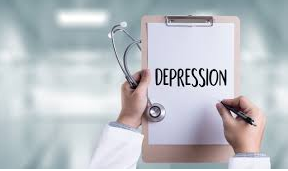 Depression is a chronic mental illness that can have overwhelming symptoms, which is why specialist treatment of depression is always recommended. Even the most routine daily actions can be affected by depression which comes with lack of energy, low self-esteem and a dwindling enthusiasm to participate in usual social activities.
Depression is a chronic mental illness that can have overwhelming symptoms, which is why specialist treatment of depression is always recommended. Even the most routine daily actions can be affected by depression which comes with lack of energy, low self-esteem and a dwindling enthusiasm to participate in usual social activities.
By receiving treatment at a professional depression treatment center, sufferers can learn the skills they can use to successfully manage life on their own. Clinical depression is eminently treatable which adds to the advantage of formal programs at professional depression treatment centers.
There are some highly effective techniques those with depression can use to combat the mental disquiet and discomfort the disease can cause, as follows:
Addressing the Sources of Anger
Clinical depression is much more than feeling down of the dumps although there are often distinct triggers that led to this mental disorder. Some people experience the condition as a permanent sense of sadness or increasingly painful emotions akin to a sense of longing for something indeterminate. In some cases, depression can be traced back to trauma or stressful experiences in younger years that have been internalized rather than dealt with.
Whatever the causes or source of depression, one of the most common symptoms is an almost unfathomable rage and anger. However, whereas a healthy response to anger at a situation or individual is to direct it at the source but when someone is suffering depression, they often turn that anger towards themselves to detrimental effect. By masking inner feelings of anger, depression can force someone to become withdrawn and even completely disconnected from the people around them. Professional treatment in this situation can assist in identifying the source of angry feelings and redirect them away from the sufferer.
Increase Physical Activity
Aside from the obvious health benefits of physical exercise, the natural feeling of well-being gained can be extremely therapeutic to sufferers of depression. Vigorous physical exercise stimulates the production of endorphins which lead to an almost ‘high’ feeling by creating positive brain stimulus and a physical sense of being energized.
Depression often leads to reduced levels of energy and physical activity, even in small bursts can go a long way to restoring them to promote wellbeing and better emotional health. The longer terms of physical exercise can considerably boost confidence and the ability to cope with otherwise stressful situations which can also assist in lessening the symptoms of depression and anxiety.
Avoid Isolation
Many people with depression have an overwhelming sense of no-one understanding them. For that reason, they often withdraw into themselves and retreat into their own world where they are accepted without judgment.
However, this has an overall negative impact and can actually heighten symptoms of depression as becoming isolated reinforces all the bad feelings that accompany the disease. Although sufferers can feel alone in a room full of people, it is essential to attempt to be present rather than reverting to the comfort zone of loneliness.
It is sometimes easier for someone with depression to find activities they have an interest in and where they can meet new and like-minded people. Although it can be hard to fight feelings of wanting to be alone or of not being good enough to participate, sharing unrelated experiences with others can introduce new relationships that provide positive reinforcement for a healthier future.
Conclusion
Talking with a therapist is one of the most powerful ways of combating depression. Most sufferers find it very difficult to communicate, particularly at a very personal level for fear of being misunderstood or disregarded. Asking for help from someone qualified to provide treatment is a giant leap towards good mental health, mainly because the process of unraveling depression to get to the source or the cause has been proven to be one of the best treatment therapies for the disease.

